"I dont want to talk about it"
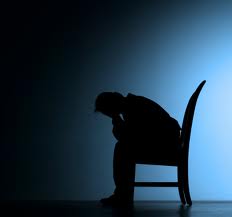
"I don't want to talk about it" is the title of a well known book on depression in males. Which shows one of the main differences between depression in men and women.
Women are much more likely to vent and seek help.
Men are more likely to turn inward, " go into the cave", and want to be left along. Often they feel more "pissed off" than depressed.
But because male depression tends to be denied and ignored it is that much more serious.
Men attempt suicide way less frequently than women.
But men are successful at suicide much more often than women.
Because males present differently with depression, I will review some of the signs of male depression.
Women are much more likely to vent and seek help.
Men are more likely to turn inward, " go into the cave", and want to be left along. Often they feel more "pissed off" than depressed.
But because male depression tends to be denied and ignored it is that much more serious.
Men attempt suicide way less frequently than women.
But men are successful at suicide much more often than women.
Because males present differently with depression, I will review some of the signs of male depression.
1) Fatigue
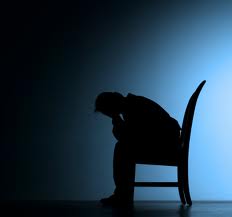
FatiguePeople who are depressed undergo a series of physical and emotional changes. They can experience fatigue, as well as psychomotor retardation, or a slowing down of physical movements, speech, and thought processes. Men are more likely than women to report fatigue and other physical symptoms of depression as their chief complaints.
2) Sleeping too little or too much
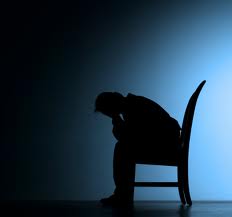
Sleep problems—such as insomnia, waking up very early in the morning, or excessive sleeping—are common depression symptoms.
"[Some people] sleep 12 hours a day and still feel exhausted or toss and turn and wake up every two hours. Another common pattern is "terminal insomnia", which means that men can get to sleep wthout problem, but awake veeerrrry early in the morning, and can't get back to sleep.
"[Some people] sleep 12 hours a day and still feel exhausted or toss and turn and wake up every two hours. Another common pattern is "terminal insomnia", which means that men can get to sleep wthout problem, but awake veeerrrry early in the morning, and can't get back to sleep.
3) Irritability
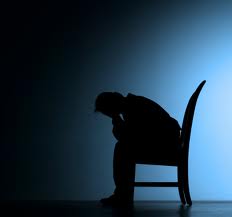
IrritabilityInstead of seeming down, men who are depressed often show signs of irritability. "If they talk about an emotional component, it could be sadness with irritability.
Negative thoughts are a common aspect of depression. "Men will report feeling irritable because they are having negative thoughts constantly.
Negative thoughts are a common aspect of depression. "Men will report feeling irritable because they are having negative thoughts constantly.
4) Difficulty concentrating
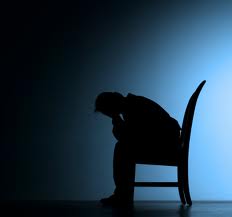
Difficulty concentratingPsychomotor retardation can slow down a man's ability to process information, thereby impairing concentration on work or other tasks.
Depression fills one with negative thoughts, almost like an intrusion. You're slowed down and constantly thinking about negative things in your world. As a result it makes it very difficult to focus on anything."
"I describe depression as a form of reversible brain failure. When you're depressed, it's like your CPU [central processing unit] isn't working properly."
Depression fills one with negative thoughts, almost like an intrusion. You're slowed down and constantly thinking about negative things in your world. As a result it makes it very difficult to focus on anything."
"I describe depression as a form of reversible brain failure. When you're depressed, it's like your CPU [central processing unit] isn't working properly."
5) Anger or Hostility
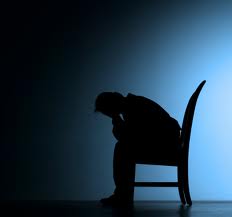
Some men manifest depression by being hostile, angry, or aggressive. A man who realizes something is wrong may need to compensate by demonstrating that he is still strong or capable.
Anger and hostility are different than irritability. Anger tends to be a stronger emotion. Irritability is a crankiness.
Men also become hostile when they have withdrawn as a result of their depression and feel under pressure by friends or family to rejoin society.
Anger and hostility are different than irritability. Anger tends to be a stronger emotion. Irritability is a crankiness.
Men also become hostile when they have withdrawn as a result of their depression and feel under pressure by friends or family to rejoin society.
6) Stress
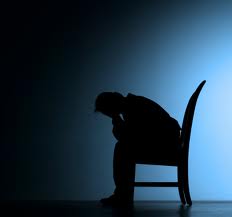
Men might be more likely to report symptoms of depression as stress. It's not that they have more stress; it's that it's more socially acceptable to report it.
Stress and depression can also travel a two-way street. Feeling stressed can be an indicator of having clinical depression but also be part of the cause," he says.
Research has shown that prolonged exposure to stress can lead to changes both in the body and brain, which can in turn lead to depression.
Stress and depression can also travel a two-way street. Feeling stressed can be an indicator of having clinical depression but also be part of the cause," he says.
Research has shown that prolonged exposure to stress can lead to changes both in the body and brain, which can in turn lead to depression.
7) Anxiety
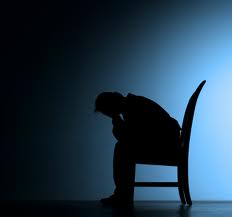
Research has shown a strong link between anxiety disorders and depression.
Men may be no more likely than women to experience anxiety—in fact, anxiety disorders are about twice as prevalent in women—but it's often easier for men to talk about feeling anxious rather than sad.
Men may discuss concerns about work and whether the loss of a job will impede their ability to provide for themselves and their family.
Men may be no more likely than women to experience anxiety—in fact, anxiety disorders are about twice as prevalent in women—but it's often easier for men to talk about feeling anxious rather than sad.
Men may discuss concerns about work and whether the loss of a job will impede their ability to provide for themselves and their family.
8) Substance abuse
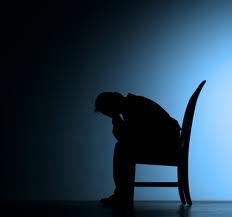
Substance abuse frequently accompanies depression. Research has shown that alcoholics are almost twice as likely to suffer from major depression as people without a drinking problem.
It can happen for both men and women, but using drugs or alcohol to mask uncomfortable feelings is a strategy many men will employ instead of seeking health care.
"There's a cultural bias of, 'I should be able to fix this myself and so I'll use what chemicals I have available to me to do that.'
It can happen for both men and women, but using drugs or alcohol to mask uncomfortable feelings is a strategy many men will employ instead of seeking health care.
"There's a cultural bias of, 'I should be able to fix this myself and so I'll use what chemicals I have available to me to do that.'
9) Sexual dysfunction
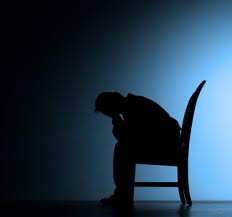
Depression is a common reason for loss of desire and erectile dysfunction (ED), and it's one symptom that men are inclined not to report. Performance problems can come from depression and make depression worse.
However, ED can be the result of other medical conditions or medications (including antidepressants), and ED by itself does not signal depression.
However, ED can be the result of other medical conditions or medications (including antidepressants), and ED by itself does not signal depression.
10) Indecision
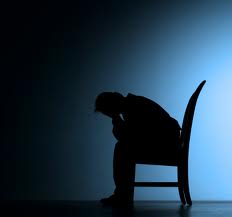
I can't count the number of people who have said, 'I had money in the bank but the phone got shut off because I couldn't bring myself to [pay the bill] or decide what to do and when.' It gets overwhelming,"
Some people naturally have a hard time making decisions, so an inability to make choices is usually worrisome only if it's a new behavior.
It's an information-processing issue, and depression slows down your ability to decide.
Some people naturally have a hard time making decisions, so an inability to make choices is usually worrisome only if it's a new behavior.
It's an information-processing issue, and depression slows down your ability to decide.
11) Suicidal thoughts
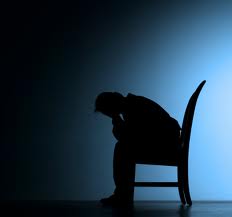
Women are more likely to attempt suicide, but men are more than four times as likely to die if they do attempt suicide. One reason is that men tend to choose more lethal methods. They more often use firearms and kill themselves the first time they try.
Older men are at highest risk for suicide, and doctors may miss depression symptoms in this group. In fact, more than 70% of older suicide victims saw their primary care physician within the month of their death.
A study released in June of 2013 showed that the highest men at risk of suicide are men over the age of eighty.
Depression is not a normal part of aging in men or women.
Older men are at highest risk for suicide, and doctors may miss depression symptoms in this group. In fact, more than 70% of older suicide victims saw their primary care physician within the month of their death.
A study released in June of 2013 showed that the highest men at risk of suicide are men over the age of eighty.
Depression is not a normal part of aging in men or women.